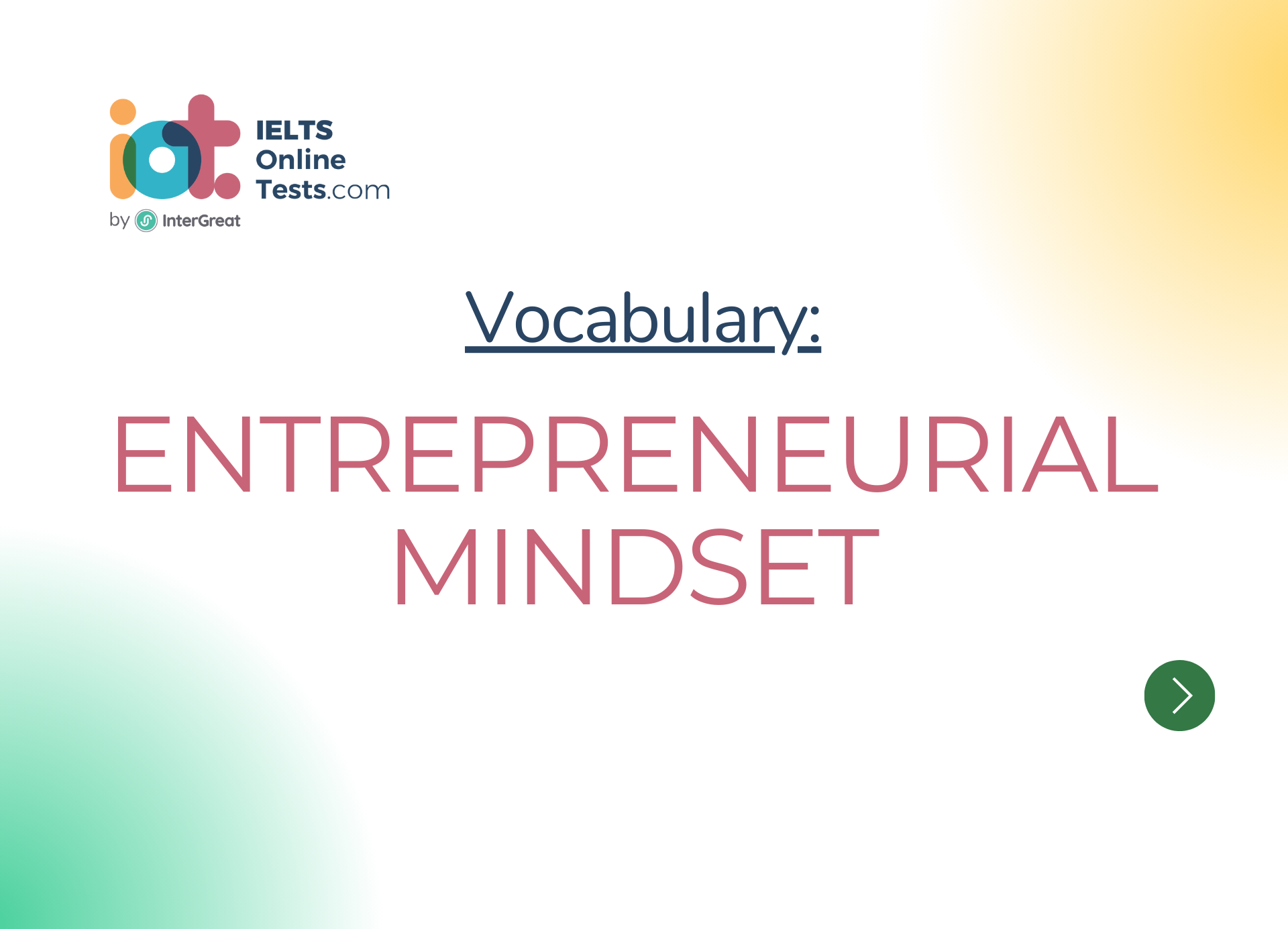
Entrepreneurial mindset
Here's a detailed list of vocabulary related to the entrepreneurial mindset for the IELTS band score 4.5-6.0:
Entrepreneurial Mindset:
A way of thinking that emphasizes creativity, innovation, and a proactive approach to problem-solving.
Opportunity Recognition:
The ability to identify and capitalize on potential business opportunities.
Risk-Taking:
The willingness to take calculated risks in pursuit of business goals.
Adaptability:
The ability to adjust and respond effectively to changes and challenges.
Resilience:
The capacity to bounce back from failures and setbacks.
Vision:
A clear and inspiring mental picture of future goals and objectives.
Creativity:
The ability to generate original and innovative ideas.
Innovation:
Introducing new products, services, or processes to the market.
Resourcefulness:
Finding creative and practical solutions with limited resources.
Persistence:
The determination to keep going despite obstacles and difficulties.
Proactivity:
Taking initiative and being proactive in seeking opportunities.
Self-Confidence:
Belief in one's abilities and ideas.
Self-Motivation:
Inner drive and motivation to achieve goals without external prompting.
Networking:
Building and maintaining professional relationships to create opportunities.
Leadership:
The ability to inspire and guide others toward a common vision.
Decision-Making:
The process of making choices based on analysis and evaluation.
Time Management:
The ability to effectively allocate time for different tasks and priorities.
Goal Setting:
Defining specific and measurable objectives for personal and business growth.
Flexibility:
Being open to new ideas and adapting to changing circumstances.
Opportunistic:
Willingness to seize opportunities that arise unexpectedly.
Intrapreneurship:
Entrepreneurial behavior exhibited within a larger organization.
Market Awareness:
Understanding market trends, customer needs, and competition.
Strategic Thinking:
Planning and thinking ahead for long-term success.
Financial Literacy:
Understanding and managing financial aspects of a business.
Team Building:
The process of assembling and developing a competent team.
Negotiation Skills:
Ability to reach mutually beneficial agreements.
Customer-Centric:
Focusing on meeting the needs and preferences of customers.
Continuous Learning:
Commitment to ongoing learning and improvement.
Mentorship:
Seeking guidance and advice from experienced individuals.
Elevator Pitch:
A brief and compelling summary of a business idea or product.
Bootstrapping:
Starting and growing a business with minimal external funding.
Scaling:
Expanding and growing a business to reach a larger market.
Strategic Partnerships:
Collaborations with other businesses to achieve mutual benefits.
Pitching:
Presenting a business idea or product to potential investors or partners.
Stakeholders:
Individuals or groups with an interest or influence in a business.
Market Analysis:
Evaluating market trends, competitors, and potential customers.
Business Development:
Activities aimed at expanding a company's reach and revenue.
Product-Market Fit:
Ensuring that a product meets the needs of its target market.
Market Validation:
Confirming that there is demand for a product or service in the market.
Lean Startup:
An approach that emphasizes quick iterations and customer feedback to build a sustainable business.
Remember to practice using these words in context to enhance your understanding and fluency. Best of luck with your IELTS preparation!




